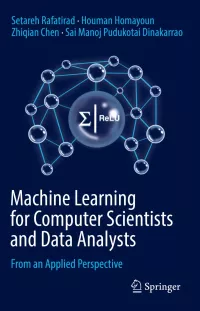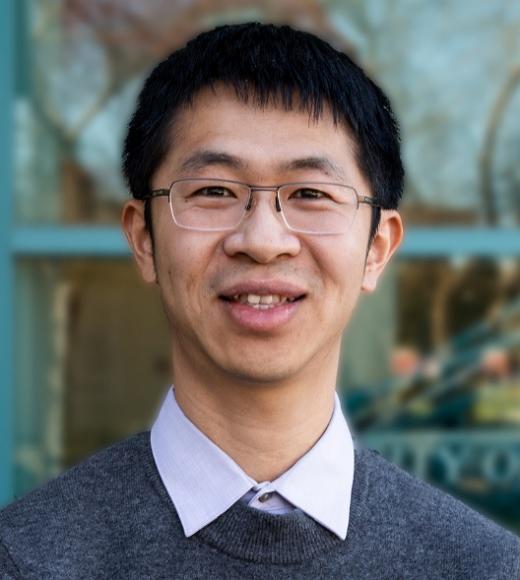
Exploring AI Frontiers ECE Research and Educational Initiatives
Foundations of Artificial Intelligence: A Research Perspective

ECE faculty at UC Davis conduct research across several key areas of AI Fundamentals to enhance trust and accountability, particularly in high-stakes applications; optimize computational efficiency for faster and more energy-efficient AI processing; improve training processes to reduce resource consumption and boost model performance; and advance the field by enabling unsupervised learning by allowing models to discover patterns and generalize knowledge without explicit human guidance.
Fundamentals
- Unsupervised Learning
- Unsupervised learning trains AI models on unlabeled data to discover patterns, unlike supervised learning which requires labeled data. ECE faculty demonstrate that unsupervised learning, including unsupervised domain adaptation, can achieve near state-of-the-art performance even with limited labeled data.
Explore details and research - Self-Supervised Learning
- Self-supervised learning leverages unlabeled data by creating pretext tasks to implicitly learn data structures. ECE faculty's research, including methods like Extreme-Multi-Patch Self-Supervised Learning and temporal trajectory learning, demonstrates the efficiency and effectiveness of this approach in achieving high accuracy and improved 3D representation.
Explore details and research - Reinforcement Learning
- Reinforcement learning agents learn through environmental interaction and reward signals, with exploration crucial for information gathering. ECE faculty research focuses on improving RL efficiency through techniques like reusable robot actions via multi-task policies and leveraging warm-start policies to enhance online learning.
Explore details and research - Optimization
- Optimization is critical for enhancing AI model training and overall performance. ECE faculty research explores optimization techniques, like Riemannian Block Coordinate Descent, to improve AI computational efficiency. Their work also investigates forward-forward learning, aiming to create scalable and efficient AI systems for resource-constrained hardware.
Explore details and research - Hardware Architecture
- Powerful and efficient hardware is crucial for training and running AI/ML models, enabling the processing of large datasets and achieving optimal performance. ECE faculty research focuses on hardware acceleration through innovative neural processing engine designs and AI-driven FPGA performance estimation to streamline design and improve efficiency.
Explore details and research - Explainability
- AI explainability, crucial for trust and accountability, clarifies how AI models reach decisions, especially in high-stakes applications. ECE faculty research focuses on improving the accuracy of saliency maps, a key tool for enhancing AI transparency and responsible use.
Explore details and research
Innovative Applications and Societal Implications

Artificial intelligence rapidly transforms various sectors, and engineers offer innovative solutions to complex problems and drive significant societal impacts. From healthcare to transportation and fundamental science, ECE faculty at UC Davis enable advancements in disease diagnosis, personalized treatment, traffic flow optimization and discoveries in fundamental science. These applications have the potential to enhance efficiency, improve quality of life and address critical challenges facing society.
Applications and Impacts
- AI for Science
- AI significantly accelerates scientific discovery by automating analysis and hypothesis generation, leading to breakthroughs in diverse fields. ECE faculty leverages AI's capabilities in various applications, from economic analysis using satellite imagery to advanced biomedical imaging, high-speed imaging system development and new discoveries in neuroscience.
Explore details and research - AI for Security/Privacy
- AI strengthens security and privacy through automated threat detection and improved data protection mechanisms. ECE faculty apply AI to enhance cybersecurity in diverse contexts, including malware detection, recycled IC identification, privacy in distributed machine learning and developing robust anonymization techniques.
Explore details and research - AI for Hardware Design
- AI streamlines and optimizes hardware design by automating tasks and improving efficiency, leading to faster development and better performance. ECE faculty utilize AI to optimize clock skew for energy-efficient designs and accelerate static timing analysis for high-performance hardware.
Explore details and research - AI for 5G Networks
- AI optimizes 5G network performance and enables new services through real-time data analysis and predictive modeling. ECE faculty apply AI to improve resource allocation, communication efficiency and spatial diversity within 5G networks.
Explore details and research - AI for Health
- AI enhances healthcare through faster, more accurate diagnoses, personalized treatments and accelerated drug discovery. ECE faculty utilize AI to improve applications such as autism spectrum disorder recognition, neurodegenerative disease analysis, fluid resuscitation prediction and real-time clinical insights.
Explore details and research - AI for Transportation
- AI improves transportation through autonomous vehicles, optimized traffic management, and predictive maintenance, enhancing efficiency, safety and sustainability. ECE faculty apply AI to address privacy in GPS data, optimize traffic flow using reinforcement learning and create realistic autonomous driving scenarios.
Explore details and research - AI for Equity
- Understanding and mitigating biases in large language models (LLMs) is critical for ethical AI. ECE faculty use AI to visualize and analyze LLM internal workings, identifying potential biases and promoting responsible development.
Explore details and research
ECE Education Drives AI Innovation
The UC Davis ECE department's artificial intelligence and machine learning curriculum begins in upper-division undergraduate courses and continues into graduate studies. The curriculum emphasizes core concepts such as data preparation, sensor design, algorithm development, model explainability, hardware-software integration, and security and privacy. Students benefit from UC Davis's diverse academic environment, applying AI/ML to real-world problems in fields like agriculture, veterinary medicine and health sciences. This approach integrates practical application constraints and ethical considerations, drawing on expertise across the university.
Coding Skills
Upper-division ECE students are expected to possess foundational coding skills (including Python for data science) to readily acquire competence in Python libraries (e.g., scikit-learn for ML and PyTorch for deep learning) in AI/ML-focused courses to comprehend cutting-edge AI/ML models and develop/train models of their own. CE and EE undergraduates fulfill coding requirements through parallel tracks. CE majors complete a three-course sequence focused on in-depth programming and algorithm design, while EE majors complete a two-course sequence emphasizing practical applications and microcontroller programming.
Computer Engineering (CE) Coding Track
Course 1: Programming & Problem Solving (ECS 036A): Algorithm design, debugging, programming style, UNIX tools.
Course 2: Software Development & Object-Oriented Programming in C++ (ECS 036B): Data structures, program complexity and efficiency, debugging, verification.
Course 3: Data Structures, Algorithms, & Programming (ECS 036C): Data structure design and analysis (trees, heaps, searching, sorting, hashing, graphs).
- Electrical Engineering (EE) Coding Track
Course 1: Engineering Problem Solving (ENG6): Procedural and object-oriented programming, data structures, graphical user interface (GUI) programming.
Course 2: Introduction to Programming and Microcontrollers (EEC7): C/C++ languages, basic hardware programming.
These foundational coding courses provide comprehensive coverage, preparing students to learn additional languages throughout their studies. Further specialized language training is also available through the UC Davis Department of Computer Science and the UC Davis DataLab.
ECE AI Curriculum
- EEC 174ABY | Applied Machine Learning Senior Design
- Design, development and evaluation of components that are critical to artificial intelligence (AI) driven control systems.
- EEC 174AY | Applied Machine Learning Senior Design
- Applied machine learning (ML) and deep learning (DL) in engineering systems. Design and evaluation of components that are critical to artificial intelligence (AI) driven control systems, including but not limited to sensor fusion, feature engineering, computer vision (semantic segmentation, objection detection), ML based classification and learning-based control systems.
- EEC 175AB | Internet of Things Senior Design Project
- Internet of Things engineering course with focus on use of ML applications in supporting the IOT solution’s decision-making process.
- EEC 289A | Introduction to Unsupervised Learning
- A fundamental and advanced machine learning course focused on building machines that can learn from the world and data automatically driven by intrinsic objectives without external supervision.
- EEC 289Q | Practical AI
- Comprehensive introduction to practical AI, focusing on the application of AI techniques in real-world scenarios.
- EEC 289Q | Deep Learning Hardware
- Comprehensive understanding of the hardware aspects of machine learning.
- EEC289QV | Machine Learning for Health Applications
- Introduction to the key AI/ML tools and methodology for health applications.
Undergraduate AI Senior Design Projects
Professor Chen-Nee Chuah taught EEC174ABY, in which the following senior projects were completed in the 2023-24 academic year.
- ARMS: Automated Rover for Mobile Support
- Vigil-Eye: Enhancing Road Safety for Distracted Drivers
- EmergenSee
- Intelligent Traffic Management System
- Vision-Guardian
- NavigateNCount

Professor Houman Homayoun is a co-author of a textbook on Applied Machine Learning for Computer Scientists and Data Analysts: From an Applied Perspective, Springer Nature
The textbook thoroughly explains the theory behind machine learning algorithms, progressing from simple neuron fundamentals to complex neural networks such as generative adversarial networks and graph convolution networks. The book's main goal is to help readers understand these concepts and develop the ability to choose the right algorithm for any given problem. The book uses numerous case studies, ranging from simple time-series forecasting to object recognition and recommendation systems using large databases, along with practical implementation examples and exercises.
UC Davis AI Center in Engineering
The Department of Electrical and Computer Engineering is a proud contributor to the UC Davis AI Center in Engineering,
which is leading the way in foundational AI research as well as translational applications and AI education efforts.











